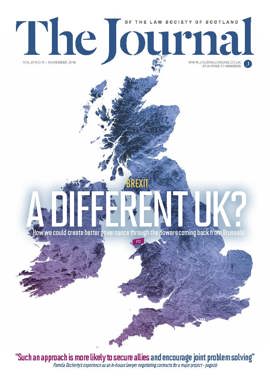Trapped employers – relief any time soon?

In certain circumstances a deficit in a defined benefit pension scheme can become the basis for a debt on an employer (or former employer) participating in it. In such schemes where there are a number of employers participating (known as multi-employer schemes), special provisions apply such that in certain circumstances a debt can be triggered on an employer where that employer ceases to employ at least one person who is an active member of the scheme, when at least one other relevant employer continues to employ at least one active member of the scheme (referred to as an “employment cessation event”).
The switch in the debt calculation basis to the more strict buyout basis compounded problems for employers. While some easements have already been introduced to afford a degree of flexibility in certain situations (i.e. withdrawal arrangements and period of grace provisions), concerns continued to be raised by many, particularly employers in certain non-associated multi-employer schemes, as to how the legislation was operating. That was particularly so for “small” employers, in circumstances where employer desire is to minimise further accrual of pensions risk and in the context of certain schemes being closed to new members.
In response to those concerns, the DWP issued a call for evidence on Section 75 Employer Debt in Non-Associated Multi-Employer Defined Benefit Pension Schemes. That call, by way of now closed consultation, outlined some further possible easements, including:
- Flexibility around debt repayment, i.e. greater flexibility to arrange a debt repayment plan with a departing employer.
- Amending the provisions so that ceasing to employ active members does not trigger employer debt. The debt would still be triggered in the event of employer insolvency or scheme wind-up.
- Changing the way liability is calculated following an employment cessation event, i.e. moving away from calculating the debt on the full buyout basis completely, or in certain circumstances, such as employers being in a position to demonstrate a strong covenant, or giving the trustee the power to call in the debt if the employer ceases to meet certain conditions.
Call for action
With the consultation period having expired on 22 May 2015, it had been hoped that further easements might be taken forward. With no sign of that, on 28 June 2016 an early day motion was tabled in Parliament “calling upon the Government to respond to its consultation and expressing concern that changes to pensions legislation intended to ensure that employers meet their pension scheme liabilities are causing unintended financial difficulties for small business owners in non-associated multi-employer pension schemes… notes that the way in which the s 75 employer debt is calculated at full buyout level and includes a share of orphan liabilities causing debts for employers which can be substantially more than what would be required to meet pension obligations... and calls for a response from Government and for urgent revision of the way debt is calculated for non-associated multi-employer schemes”.
Whilst a Government response is still awaited, one would hope that it is not too long before a response is made, and the shortcomings of the legislation addressed and further easements introduced. It is difficult to see why, in the current pensions landscape and with appropriate protections in place, employers participating in a non-associated multi-employer defined benefit pension scheme should not at least enjoy the flexibility afforded to an employer in a single employer scheme, i.e. to cease accrual of further benefit without that inadvertently triggering a cessation debt. Notwithstanding that difficulties will continue to arise from the employer cross subsidy in respect of orphan liabilities under such schemes, there seems unfortunately to be no easy fix to address these continuing and underlying difficulties.
In this issue
- Insider lists: the new must-do
- Pensions valuation and the “relevant date”
- Data: blurring the lines between privacy and risk?
- IT: the proficiency and the gaps
- Reading for pleasure
- Opinion: Peter Boyd
- Book reviews
- Profile
- President's column
- The Keeper steps in
- People on the move
- Beyond Yes and No: Britain after Brexit
- Brexit: leaving European judicial space
- Timed out? Alternative financial claims by cohabitants
- The end of the cash ISA?
- We need to talk about Beatrice
- Global players
- Digital: the dark side
- Cautionary tale
- Married to the land? – appealed
- Pregnancy: the unequal burden
- Privacy: strictures and safeguards
- Trapped employers – relief any time soon?
- Scottish Solicitors' Discipline Tribunal
- Convenient, but necessary?
- Is there a lawyer in the house?
- From the Brussels Office
- Law reform roundup
- Master Policy: the new team moves in
- The "buzz" of mediation
- Plan into action
- Sorry: the hardest word, made easier
- Ask Ash
- Appraising: what's your score?
- Paralegal pointers






